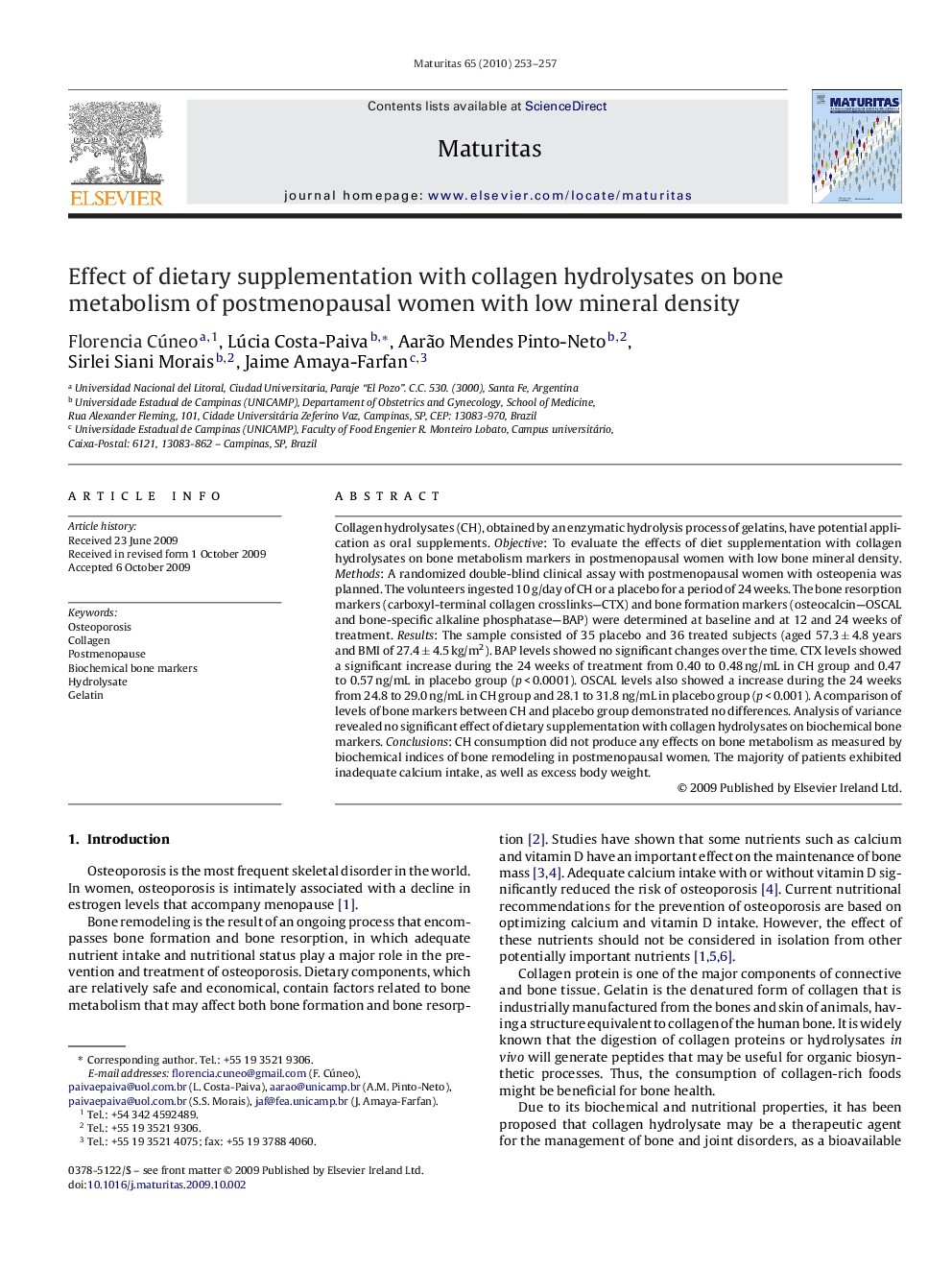| Article ID | Journal | Published Year | Pages | File Type |
|---|---|---|---|---|
| 1918160 | Maturitas | 2010 | 5 Pages |
Collagen hydrolysates (CH), obtained by an enzymatic hydrolysis process of gelatins, have potential application as oral supplements. Objective: To evaluate the effects of diet supplementation with collagen hydrolysates on bone metabolism markers in postmenopausal women with low bone mineral density. Methods: A randomized double-blind clinical assay with postmenopausal women with osteopenia was planned. The volunteers ingested 10 g/day of CH or a placebo for a period of 24 weeks. The bone resorption markers (carboxyl-terminal collagen crosslinks—CTX) and bone formation markers (osteocalcin—OSCAL and bone-specific alkaline phosphatase—BAP) were determined at baseline and at 12 and 24 weeks of treatment. Results: The sample consisted of 35 placebo and 36 treated subjects (aged 57.3 ± 4.8 years and BMI of 27.4 ± 4.5 kg/m2). BAP levels showed no significant changes over the time. CTX levels showed a significant increase during the 24 weeks of treatment from 0.40 to 0.48 ng/mL in CH group and 0.47 to 0.57 ng/mL in placebo group (p < 0.0001). OSCAL levels also showed a increase during the 24 weeks from 24.8 to 29.0 ng/mL in CH group and 28.1 to 31.8 ng/mL in placebo group (p < 0.001). A comparison of levels of bone markers between CH and placebo group demonstrated no differences. Analysis of variance revealed no significant effect of dietary supplementation with collagen hydrolysates on biochemical bone markers. Conclusions: CH consumption did not produce any effects on bone metabolism as measured by biochemical indices of bone remodeling in postmenopausal women. The majority of patients exhibited inadequate calcium intake, as well as excess body weight.
